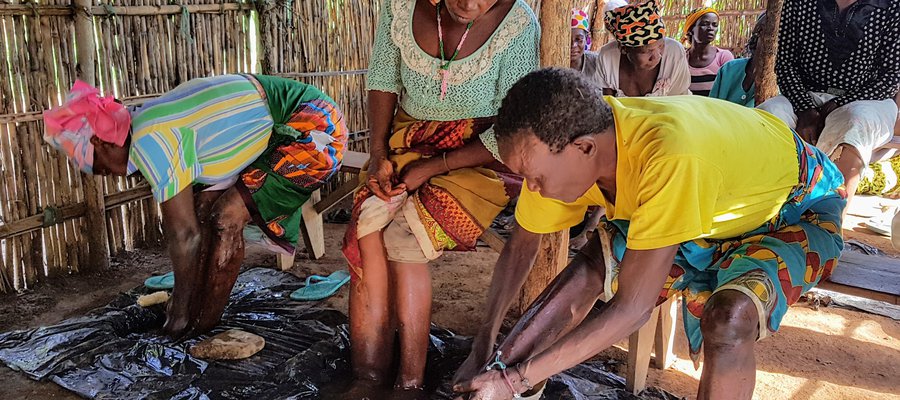A guide to leprosy-related disabilities
A guide to leprosy-related disabilities

Why does leprosy cause disabilities?
Nerve damage is the main cause of the impairments seen in leprosy. M. Leprae causes inflammation of the nerves and can go on to damage the nerves that supply the hands, feet, and eyes. The complications of leprosy occur because of nerve damage. If this damage is noticed in time, it can usually be reversed by treatment with steroids.
Nerve damage causes the following complications.
Hands: Nerve damage causes loss of feeling of the hands which means they can be easily injured without you feeling it, for example by being burnt when cooking or blistered or cut while using tools etc.
Feet: you might not be able to feel if there is a stone in your shoe. You might not notice that your shoes are too tight or are rubbing and causing blisters.
Loss of sensation leads to wounds: Because you cannot feel these things, you might not realise that you have damaged your skin and so you won’t look after it by cleaning the wound or covering it. Damaged skin allows germs to enter the body and causes infection. Infected tissue can lead to gangrene (dead tissue) which can result in loss of fingers.
If you notice a wound has occurred and you cannot feel it, go the nearest health centre or hospital for advice.
Eyes: you can no longer feel when there is something hurting your eye. For example, you might not feel if there is a piece of sand in your eye, or you might not feel that your eyes are dry and you need to blink. Over time, this can mean that your eyes become damaged or scratched without you realising. If allowed to continue, this could lead to blindness.
Hands - You might struggle to make your hands into a fist or you might find it hard to pick things up, like a cup or a pencil. You might also notice that you cannot stretch your fingers out and hold your hand flat. Instead, your fingers are clawed inwards.
Feet - If you are standing and you cannot point your toes towards the sky, this is an indication that leprosy has begun to damage the nerves in your knee. This means that when you lift your foot up to walk, your toes will continue to touch the ground.
Eyes - You might not be able to closer your eye properly. Our eyelids protect our eyes, for example, when we are sleeping, and they also clean our eyes when we blink. If you can’t close your eyelids, your eyes can be damaged – left untreated this can lead to blindness.
It is possible to receive help when leprosy is damaging your eyes, so it is important that you talk to a doctor about this.
One of the key signs of leprosy is a loss of feeling in your skin. This means that, if someone touches you with a feather or a pencil, you won’t be able to feel it. This also means that you might not be able to feel if a pan is hot or if there is a stone in your shoe.
Because you cannot feel these things, you might not realise that you have damaged your skin and so you won’t look after it by cleaning the wound or covering it. This is a common problem for people who have experienced leprosy and it can lead to ulcers, which are serious wounds that can cause problems.
If you notice a wound has occurred and you cannot feel it, you should talk to a doctor about it.
Leprosy can cause disabilities if it is not treated properly. Thankfully, leprosy is curable through Multi-Drug Therapy. As well as this, there are lots of tools and techniques we can use to help somebody who is already experiencing disabilities that have been caused by leprosy.
If you are worried about disabilities caused by leprosy, make sure you talk to a health worker about receiving the treatment you need. The Leprosy Mission and our partners provide this treatment free of charge to people all over the world.